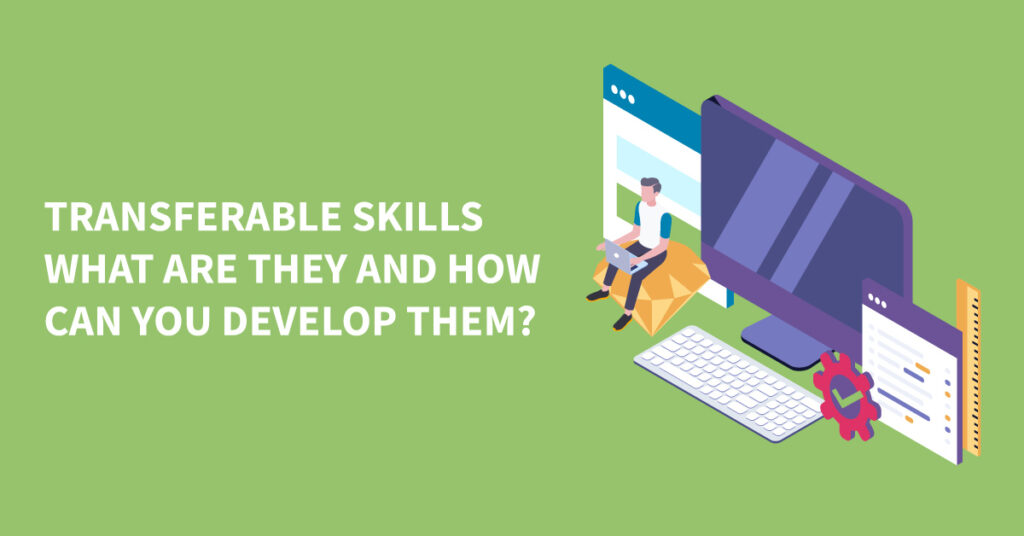
Transferable skills are qualities that can be transferred from one role to another, regardless of how big of a career change it is. These skills will prove helpful across different areas of life such as social, educational, and professional situations.
Whilst searching for a new role with little or no experience, people will be put off when asked about the skills and qualities they possess and how they would benefit the role. If you find that you haven’t got any work experience, you can still talk about the transferable skills you will have gained throughout your life.
What are some examples of transferable skills?
There are many skills that you can give as an example when job searching. Here are a few examples:
Team work
A key skill valued by any employer is team work. When searching for the right candidate, they will want to know if they are able to work both individually and as part of a team to achieve goals and business success.
Organisational skills
Those with strong organisational skills play a vital role in helping a business function successfully. Organisational skills ensure operational efficiency, productivity and consistency within your role. Good organisation will also help with your tasks, keeping you on top of your workload.
Other areas this will benefit are filing documents, record keeping and orderliness.
Communication skills
Communication skills will aid you for both written and verbal communication methods. This skill is fundamental as you may be expected to speak to internal employees, visitors, partners or customers. It will ensure that we are able to clearly communicate information to others, as well as process it.
Active listening is also a part of good communication skills. With active listening, you’ll be sure to ask any clarifying questions so give people confidence that you’ve understood a brief or assignment. It will also ensure you avoid any costly mistakes or misunderstandings.
Time management
Good attendance and punctuality will indicate that you will be a reliable employee. As well as this, it shows that you are able to manage your time effectively and complete tasks by their deadline.
Information technology
IT skills are implemented into our lives from a young age. We use mobile phones, tablets, and PCs daily. In education, it is very likely that Microsoft Office is used as part of a learners curriculum. Most jobs will require that you are able to use word processing, spreadsheet, email communication and web-based software on a daily basis.
Employers will look for candidates that can confidently use a computer and are quick learners when it comes to new software and technology.
Problem solving
Problem solving skills allow you to overcome any unexpected issues by finding solutions. Examples of this include researching, analysis, creativity and decision making. It is also understanding what problems you are able to solve on your own and which need to be escalated to a manager.
How to develop transferable skills
If you’re looking to provide examples of transferable skills or improve on them, here are some ideas:
Volunteering
Volunteer work will provide you with a great opportunity to develop multiple skills. You will be able to prove your ability to work in a team, improve time management, communication skills and problem solving and adaptability. Volunteering will also benefit your CV, as you will be able to add it to your work experience.
Education
There are many online short courses available online that will enhance your transferable skills. These will enable you to improve your organisational skills and prove that you are a fast learner. Educational courses will also prove your willingness to continuously develop and keep up with the latest changes.
The B2W Group offers a fully funded ‘Introduction to Digital Technologies’ qualification, which will further your IT, digital marketing, and employability skills. It will build upon teamworking skills, communication and problem solving skills. The course will be delivered over three weeks and provide you with a certificate upon course completion.
Research
Researching allows you to gather information and provide you with comparisons that can help you improve. For instance, if you are looking to brush up on your email communication, you can research online to see what is expected. You will be able to see the structure of a professional email and prepare yourself for when you need to use email communication.
Tools and technology
Businesses are always looking at ways in which they can improve business processes. There are many tools available online that will help you to improve efficiency and save time.
A great example is task management tools. Tools such as Trello and Asana enable you to track progress and stay ahead of deadlines. This will help with your time management and organisational skills. Familiarising yourself with tools will give you examples to talk about in your interview stage.
Introduction to Digital Technologies
This 3-week course is designed to help kickstart your future career in Digital Marketing and Digital Technology. During this accredited course, you will gain valuable digital marketing and IT skills and a Level 1 Diploma.
The course comes at no cost and is available for those who are 16+, currently unemployed and have an interest or want to progress into Digital Marketing.
We have upcoming courses available in Greater Manchester and South Yorkshire.

